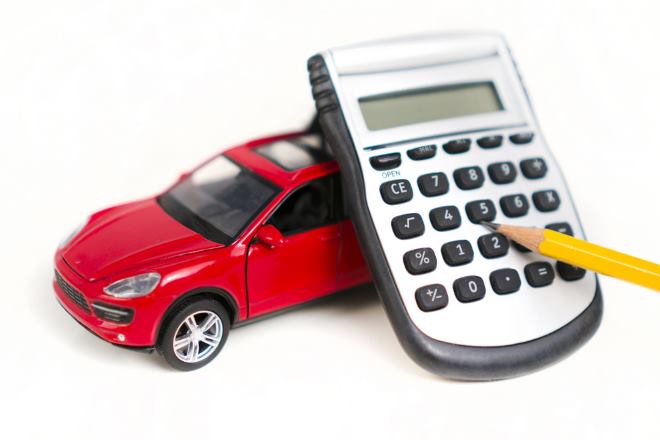Navigating the World of Used Cars: A Comprehensive Guide
Purchasing a used car can be an excellent way to save money while still getting a reliable vehicle. With the rising costs of new cars, many consumers are turning to the pre-owned market to find their next set of wheels. This guide will explore the key aspects of buying a used car, from financing options to inspecting potential purchases, helping you make an informed decision that fits your budget and needs.

Additionally, used cars often come with lower insurance costs and reduced registration fees compared to new vehicles. This can lead to significant savings over time. Many modern cars are built to last, meaning that a well-maintained used vehicle can provide reliable transportation for years to come.
How can I finance a used car purchase?
Financing a used car purchase is similar to financing a new car, but there are some key differences to keep in mind. Many lenders offer auto loans specifically designed for used vehicles. These loans may have slightly higher interest rates than those for new cars, but they can still be an affordable option for many buyers.
When considering financing, it’s essential to shop around and compare offers from multiple lenders. This includes traditional banks, credit unions, and online lenders. Each may offer different interest rates, loan terms, and eligibility requirements. Be sure to consider your credit score, as it will play a significant role in determining the interest rate you’re offered.
What should I look for when inspecting a used car?
Thoroughly inspecting a used car before purchase is crucial to ensure you’re getting a reliable vehicle. Start by examining the exterior for any signs of damage, rust, or poor repairs. Check the tires for even wear and ensure they have sufficient tread depth.
Inside the car, test all electronic features, including the air conditioning, radio, and power windows. Look for signs of excessive wear on the seats, steering wheel, and pedals, as these can indicate high mileage or poor maintenance.
Under the hood, check fluid levels and look for any signs of leaks. If possible, have a trusted mechanic perform a comprehensive inspection. They can identify potential issues that may not be immediately apparent to the untrained eye.
How important is a vehicle history report?
A vehicle history report is an essential tool when buying a used car. These reports, available from companies like Carfax or AutoCheck, provide valuable information about a vehicle’s past. This can include details about previous owners, accident history, service records, and whether the car has a salvage title.
By reviewing a vehicle history report, you can identify potential red flags and make a more informed decision about your purchase. While these reports aren’t guaranteed to catch every issue, they can provide peace of mind and help you avoid vehicles with troubled histories.
What are the best ways to negotiate when buying a used car?
Negotiating the price of a used car can help you secure a better deal. Start by researching the market value of the specific make, model, and year you’re interested in. Websites like Kelley Blue Book and NADA Guides can provide estimates based on the car’s condition and mileage.
When negotiating, be prepared to walk away if the seller isn’t willing to meet your price. Having alternative options can give you leverage in negotiations. If you’re buying from a dealership, consider negotiating the total cost of ownership, including financing terms and any add-ons, rather than just the sticker price.
How do I choose the right used car loan?
Selecting the right used car loan involves considering several factors beyond just the interest rate. While a low interest rate is desirable, it’s also important to look at the loan term, monthly payments, and any fees associated with the loan.
| Lender | Interest Rate Range | Loan Term Range | Minimum Credit Score |
|---|---|---|---|
| Bank of America | 3.99% - 8.49% | 12 - 75 months | 660 |
| Capital One | 3.99% - 12.95% | 24 - 84 months | 500 |
| LightStream | 4.99% - 12.99% | 24 - 84 months | 660 |
| PenFed Credit Union | 2.99% - 7.84% | 36 - 84 months | 610 |
| Navy Federal Credit Union | 2.79% - 17.99% | Up to 96 months | Not disclosed |
Prices, rates, or cost estimates mentioned in this article are based on the latest available information but may change over time. Independent research is advised before making financial decisions.
When comparing loan offers, consider the total cost of the loan over its entire term. A longer loan term may result in lower monthly payments but could cost more in interest over time. Additionally, check for any prepayment penalties or hidden fees that could increase the overall cost of the loan.
Your credit score will play a significant role in determining your loan options and interest rates. If your credit score is less than ideal, consider working on improving it before applying for a car loan. This could help you secure better terms and save money in the long run.
In conclusion, buying a used car can be a smart financial decision when approached with careful consideration and research. By understanding the financing options available, knowing what to look for during inspections, and being prepared to negotiate, you can find a reliable vehicle that fits your needs and budget. Remember to take your time, compare multiple options, and don’t hesitate to seek advice from trusted sources throughout the process.




